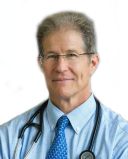Health
How Emotional Connections Can Help You Heal
The impact of being around loved ones can be significant to your health.
Posted July 21, 2020

As we continue discussing loneliness and isolation in the time of COVID-19, it is crucial to note how remaining in touch with family and friends can be essential to your health. While it is vitally important to keep your circles small and adhere to basic social distancing guidelines, the impact of being around loved ones can be significant.
Although little research has been done on the therapeutic effect of the physical presence of another person, there is extensive research on the impact of making emotional connections.
When our encounter with another person results in connecting to our emotional self—especially to a part we have avoided dealing with because of fear or grief (emotions all too prevalent right now)—the healing can be profound. In his book Opening Up, social psychologist Dr. James Pennebaker summarizes much of this research. A single sharing of deep trauma or loss with another can improve health.
In fact, some of the most remarkable studies in this area are with Holocaust survivors. Even decades after the war, most Holocaust survivors have never discussed their experiences in concentration camps or the trauma, fear, and losses they endured. In the research, these survivors were asked to write or speak about those experiences to another person who simply listened in a safe and confidential environment. The investigators then measured the impact of this sharing on the survivors’ biology (inflammatory response or blood pressure, for example) and health. Compared to those who wrote or spoke about something superficial—the weather or what they had to eat that day—this single deep sharing resulted in significant health improvements. The improvements were wide-ranging and lasting—better immune function, less pain, improved mood, and less need for medical care, even a year later.
Other studies have shown that such sharing of deep feelings about trauma and loss can also help heal specific diseases:
- Patients with rheumatoid arthritis report significant pain reduction after a single episode of such sharing.
- Patients with asthma have improved lung function—measured objectively with a spirometer—a month after a similar single sharing.
- More prolonged or repeated social and emotional exchange has profound and often permanent healing effects, especially if done in an emotionally safe environment and framed and guided in a positive direction with others to witness.
In this context, an emotionally safe place is a social environment where a person can trust others to stay with them through difficult emotions, to care for and respect them, and to honor their deepest experiences as real and of value.
My experience in the military, treating service members and veterans with PTSD and chronic pain, demonstrates this. For example, typical treatments for PTSD with drugs and psychotherapy have a positive but limited effect—usually helping only 20% to 30% of veterans. Exposure therapy—in which the veteran is gradually exposed to his fear triggers—can be a bit better, but it is complicated, and many veterans—especially those who have experienced sexual trauma—will not go through it.
Therapeutic Retreat
Two other approaches that tap into the meaning response have shown larger and often permanent healing. One approach is a therapeutic retreat, during which veterans are guided to open up to their fears, anger, anguish, and grief in the presence of other veterans who understand, accept, and love them. Dr. Joseph Bobrow describes the profound and prolonged benefit from these retreats in his book Waking Up from War. In follow-up assessments of veterans who attend such retreats, a majority experience long-term improvement and restoration in their lives.
Deep Meaningful Experiences
A second approach is inducing these deep meaningful experiences with hallucinogenic substances. Recent research reports that when even a single dose of such substances is administered, a majority of deeply depressed patients suffering from advanced cancer had major improvements in their mental and emotional state. It is important to note that the success of this approach depends on the patients being professionally selected, cared for, and guided to experience deep meaning from the episodes. Simply taking the drug by itself does not produce the healing—and in fact, can cause significant harm. The drug isn’t key; the meaning is. Healing does not necessarily require a drug—hallucinogenic or not—provided the meaning response occurs.
A meaningful experience often occurs spontaneously through what is called exceptional emotional experiences. These occur most often when people are suffering and open up to their emotions. Similar to what was discussed in last week’s blog post, loss of a loved one—through death, divorce, or another type of separation—increases the risk for disease and death several-fold. Between 30% and 50% of people who have experienced a major loss will subsequently have an exceptional experience, often described as spiritual—such as seeing a deceased person returning or what is perceived to be a ghost, or experiencing a profound sense of the unity of all things.
If such experiences are treated respectfully by others and the person is guided toward understanding and acceptance, this can be profoundly healing. If they are dismissed or treated negatively, the experience can damage a person permanently. Ultimately, healing comes from how meaning is made from those experiences. It involves the social and emotional body.


